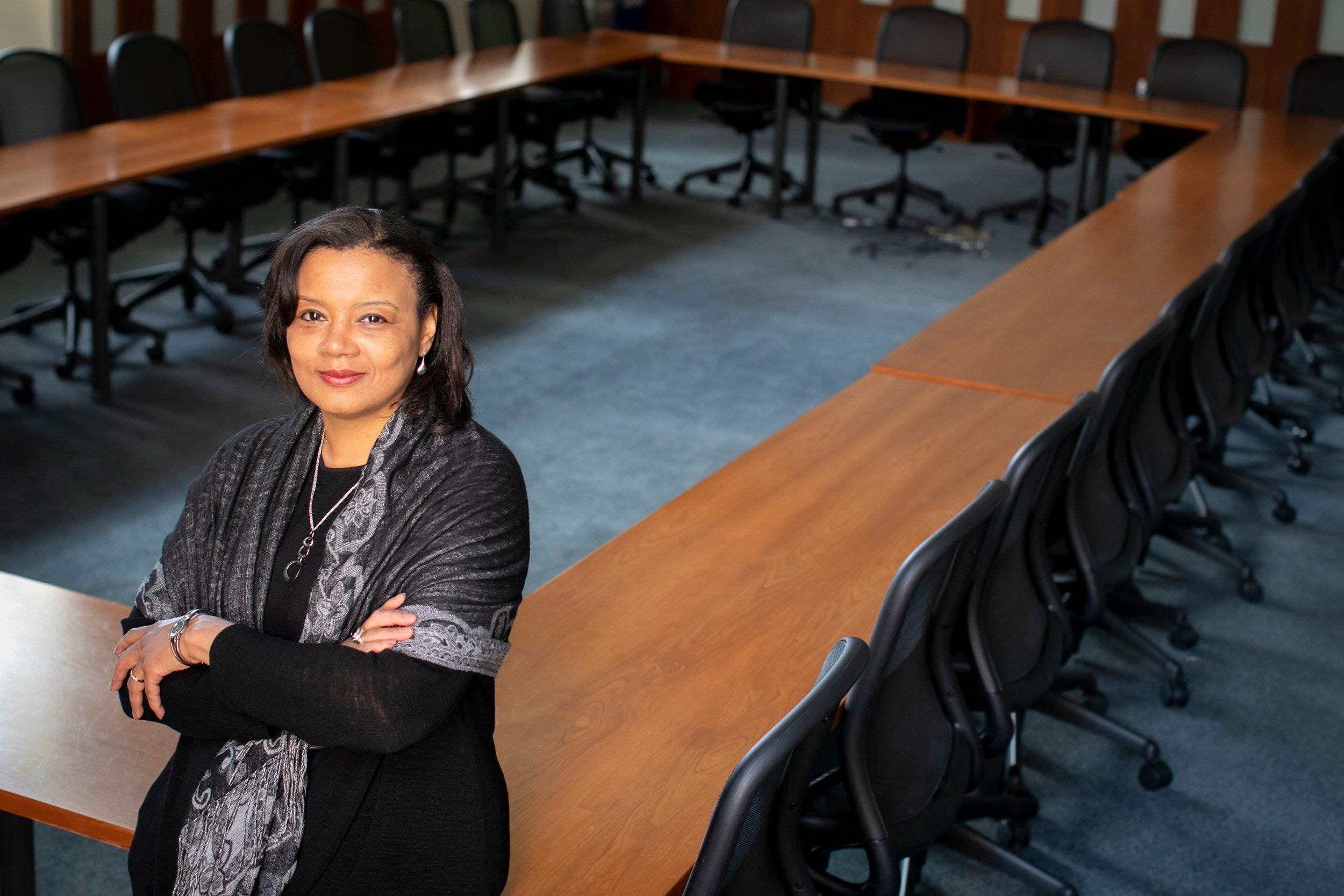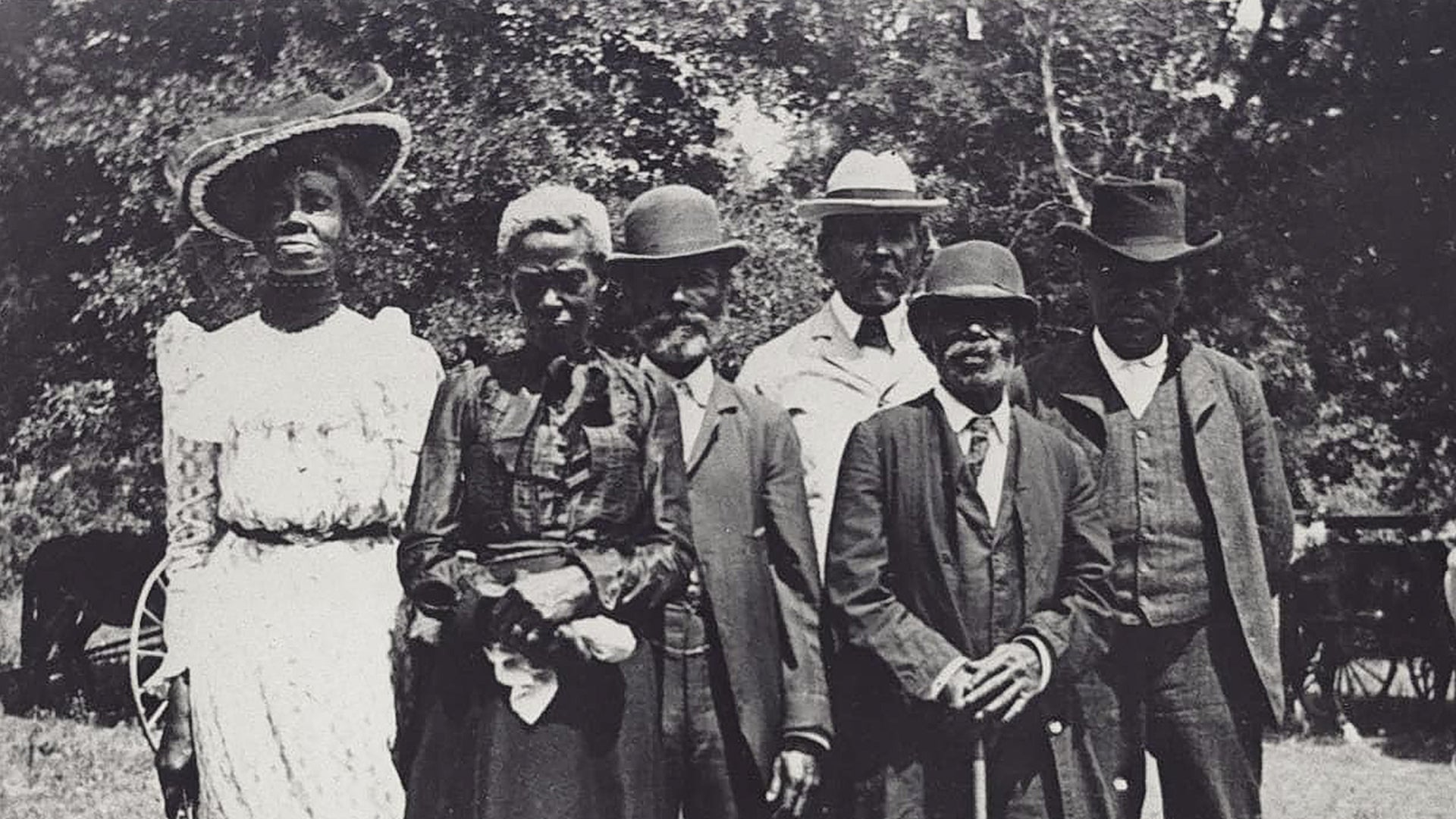The celebration of Juneteenth, marking the end of slavery in the United States, comes with special meaning this year as the country continues to grapple with the killing of George Floyd and other events that many believe bear out the legacy of institutionalized racism. Tomiko Brown-Nagin, dean of the Radcliffe Institute for Advanced Study and the Daniel P.S. Paul Professor of Constitutional Law at Harvard Law School, is an award-winning legal historian and expert in constitutional and educational law. She is the former faculty director of Harvard Law School’s Charles Hamilton Houston Institute for Race & Justice and the current chair of the Presidential Committee on Harvard and the Legacy of Slavery. Her next book, “The Civil Rights Queen,” about the Honorable Constance Baker Motley, will be published next year.
Brown-Nagin spoke with Harvard Law Today about the history of Juneteenth and its particular relevance on the day’s 155th anniversary.

Harvard Law Today: Let’s talk first about the significance of the day itself. June 19, 1865 was not the actual day of emancipation, but the day Union Gen. Gordon Granger issued a proclamation of freedom in Galveston, Texas.
Tomiko Brown-Nagin: The antecedent historical event is the Emancipation Proclamation, which [President Abraham] Lincoln had signed in 1863, as the nation entered the third year of a civil war, declaring that persons held as slaves within the rebellious states were henceforth free. And thousands joining the Union effort and many others went free as a result of that. But some enslaved people—in places like Texas, actually, which were far away from Union lines and the main war effort—never received word about that proclamation and continued in bondage. And so there came a date, June 19, 1865, when the U.S. general arrived in Galveston and announced that the enslaved people were free. The next year on June 19, free people marked the day as a day of liberation and celebration in Texas and thereafter; the move to recognize Juneteenth spread to other places.
It is significant, in my view, for making a point that many civil rights scholars and scholars of social change and legal change often have made—and that is that freedom is a constant struggle. There’s no one moment in time that that would stand for the proposition that people are in fact free. It takes action over time. And every generation struggles to achieve freedom anew. But as they were in Texas, the vestiges of bondage and segregation remain intact.
Remembrance, Resolve, Hope
Annette Gordon-Reed ’84, Martha Minow, and other members of the presidential committee guiding Harvard and the Legacy of Slavery reflect on the significance of Juneteenth.
HLT: How would you say the holiday evolved in terms of mainstream recognition? Did this coincide with the country’s reckoning with slavery as a whole?
Brown-Nagin: I would say that the evolution has been slow and has picked up steam in tandem with the black freedom movement. Juneteenth was celebrated during the Poor People’s March [on Washington, D.C.] in 1968. And since then, there’s been increasing interest from states and localities to follow the lead of African Americans in local communities, many of whom have celebrated Juneteenth in their communities, in their families with barbecues, in the recognition that the end of slavery is something that deserves a moment of reflection and is a joyous occasion to celebrate.
HLT: It took until 1979 for Texas to be the first state to recognize Juneteenth as a holiday. Do you think we’re heading toward it being recognized as a national holiday?
Brown-Nagin: I believe we’re up to 47 states and the District of Columbia that now recognize Juneteenth. I don’t know that I have heard of any particular effort that would garner the needed support to have it be a national holiday. As you probably know, Governor [Ralph] Northam of Virginia has said that he would like to formally recognize Juneteenth, which is a wonderful thing in a state like Virginia with its history in the Confederacy. And [New York Governor Andrew] Cuomo has also recently said something similar. And of course, these movements in part reflect where we are right now as a country, when a cross section of citizens has risen up to protest racial injustice after the killing of George Floyd and many others. This, I believe, is a movement that in part reflects the disproportionate impact of COVID-19 on communities of color, along with unemployment. There is a confluence of events that I think has given rise to this recent push against inequality and the recognition that the kind of violence that we’ve seen from police officers and others seems to be rooted in a kind of disregard and a devaluation of black life. That surely has roots in the system of racialized slavery.
HLT: That goes back to something you said earlier about its being a celebration. It seems that this year’s commemoration will be more serious.
Brown-Nagin: That’s right, a day of recognition. It’s somber; a day of reflection of how we as a country and as individuals continue to and should continue to reckon with slavery. And how it is foundational in our history, how the vestiges of slavery and segregation still have a hold in institutions and in social relations, and have an impact on how we view one another. And so I would say that, of all the Juneteenths I’ve seen, this one seems to have captured the imagination of a wide swath of individuals and institutions, in part because it seems so clear that the struggle against racial injustice is far from over.
HLT: What do you think President Trump’s earlier plans to hold a rally in Tulsa, Ok. that day says about the level of awareness of Juneteenth among Americans?
Brown-Nagin: I am not quite sure what to make of whatever was behind that. But I am glad that there was a pulling back from the plan to rally in Tulsa on Juneteenth. It’s appropriate for there to be recognition, remembrance, and I hope push towards remedies for the vestiges of slavery and segregation.
HLT: How do you feel that Harvard should commemorate Juneteenth?
Brown-Nagin: It’s important to connect the reckoning with slavery to efforts by universities in recent years to study their relationship to slavery. I am happy to be the chair of a Presidential initiative and a committee that is continuing to study Harvard University’s legacy with slavery; it is very important to do that. And I’m also pleased that…[Harvard University] President [Larry Bacow] announced that Harvard itself as an institution will pause and observe Juneteenth.
